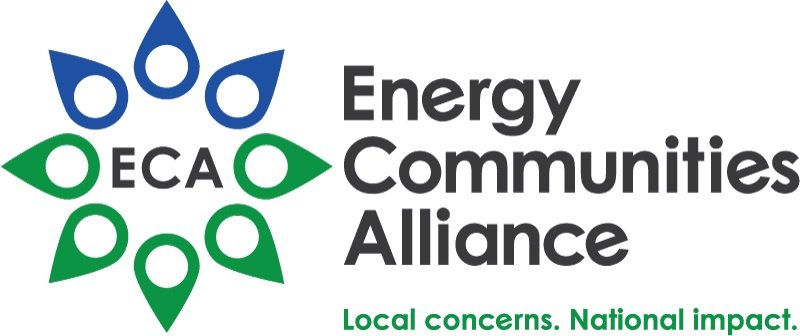ECA Calls on DOE Leadership and Congress to Prioritize and Re-Energize Disposal Solutions for Radioactive Waste
The Energy Communities Alliance (ECA), the organization of local communities near U.S. Department of Energy (DOE) national defense sites, is urging DOE to prioritize and take action to finalize disposal pathways for the radioactive waste under the Department’s cleanup responsibility.
Today, ECA is releasing a new report, “Disposal Drives Cleanup: Re-Energizing Momentum for Disposal Solutions for Radioactive Waste,” calling on DOE to launch the initiative to develop the actual waste disposition approaches. The Department could potentially save hundreds of billions of dollars in cleanup costs by using its available tools and implementing the report’s recommendations.
“The simple truth is that DOE cannot safely and effectively complete its environmental cleanup obligations without clear and achievable waste disposal pathways and locations for ALL of the waste under DOE’s responsibility,” the report states.
The Department has made significant progress toward the cleanup mission and has demonstrated its ability to safely manage waste over multiple decades. Renewed focus and action are now needed to develop disposal solutions for some of DOE’s most pressing waste types, including waste resulting from former spent nuclear fuel reprocessing activities; high-level waste and spent nuclear fuel and Greater-than-Class-C low-level waste. DOE also needs to take action to ensure sustained engagement and support for communities that could host disposal options. Without such disposal solutions, DOE faces continued delays in addressing one of its largest environmental hazards and financial costs, along with continued delays in completing cleanup activities and impacted relationships with state, local and Tribal governments and engaged stakeholders.
“DOE’s cleanup liability is one of the largest in the nation, and delay or lack of expediency could easily overwhelm available funding. It is DOE’s responsibility to abide by its legal and moral obligations to achieve waste treatment and disposal safely and efficiently for long-term protection of the environment, workers, and public,” the report states.
The report offers the following recommendations to develop more efficient and equitable approaches to address the waste management challenges DOE faces today:
Prioritize Use of the High-Level Waste Interpretation
Support and Complete the Consent-Based Siting Process
Select a Disposal Site for GTCC Waste
Support WIPP and Develop and Issue Long-Term, Integrated Plans for Operations
Continue to Emphasize Regular, Meaningful Engagement with Communities
Provide Technical Assistance to Communities to Address Waste Issues
Re-evaluate the Practice of Incentivizing Contractors to Open a Waste Site in the Contracting Process Prior to Obtaining Community Support and Regulatory Approval
Maximize the Use of Public and Private Disposal Site Options
Create Tools to Show a Community the Impacts of Waste Decisions
To read the full report, please visit www.energyca.org/publications or click here.
For more information, please contact ECA Program Manager Sarah Templeton at saraht@energyca.org or (202) 828-2410.
